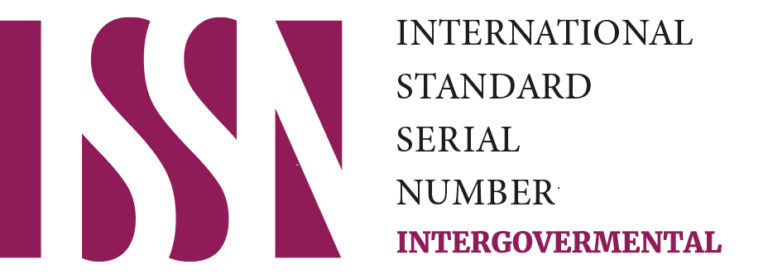ABSTRACT
The problem of illegal immigrants in The Bahamas has been ongoing for decades, especially from the Haitian diaspora. It has resulted in children being born in The Bahamas with no rights to automatic citizenship. A corresponding issue is children of single Bahamian men and foreign women with no rights to citizenship. It has led to a national citizenship crisis with thousands of undocumented residents in The Bahamas. This national dilemma has increased national and international awareness with global world concerns arising from legal, to social, to economic, and moral concerns. This paper will examine the legal framework for acquiring citizenship in a globalized world of individual rights, nationality, sovereignty, and the rule of law. The issues revolve around children born in The Bahamas to illegal Haitian migrants and children born out of wedlock to unmarried Bahamian men and foreign women. The study aims to use research material that illustrates the legal and constitutional challenges in obtaining citizenship for the target groups, the interest of the public and the application of the access to justice concept.
1. Introduction
The Commonwealth of The Bahamas entered the international system as a sovereign nation on July 10, 1973, after being granted its independence from the United Kingdom (UK) [1]. On the ascension of The Bahamas as a sovereign nation, the Constitution was endowed as the supreme law of The Bahamas. Article 1 and 2 of The Bahamas’ Constitution declares that it’s a sovereign nation with the Constitution as the supreme law [2].
Thirty years after independence, The Bahamas enacted the Status of Children Act that provides that all children are equal. Section 3 of the Act provides “that in any instrument words of relationship signify only legitimate relationship in the absence of a contrary expression of intention is hereby abolished [3]. The provision explicitly declares the equality of all children, regardless of parental status.
The plight of Haitians as illegal migrants to The Bahamas is long, and the population continues to increase. In 1974, the Haitian population in The Bahamas was placed at Forty thousand or Twenty-three percent of the population according to the 1970 census [4]. During this period, the Haitians tended to live separate and apart from the Bahamian population. They lived primarily in the Western District of New Providence, The Bahamas, in the Carmichael area. They were called the ‘Carmichael Haitians,’ and their primary interaction was that of ’employer and employee’ [5].
This subordination of Haitians is shown in the reluctance of Bahamians to have children born in The Bahamas to illegal Haitians acquire citizenship. Charmane Perry, states that there is a stigma attached to being Haitian in The Bahamas that has resulted in a feeling of exclusion [6]. Accordingly, the descendants of illegal Haitians are often denied the opportunity to become citizens of The Bahamas.
The citizenship crisis in The Bahamas of children born to illegal Haitian migrants have seen minuscule efforts to resolve the situation. There is a similar fate with the acquisition of citizenship for children born to single Bahamian men and foreign women. It has been reported that the non-resolution of these issues has been observed by the rejection of constitutional reform referenda as reported in the Eleutheran Newspaper in the overwhelming rejection of the constitutional reform proposed by the government (Eleutheran Newspaper, 2016).
The Constitutional Reform Report acknowledges the necessity of having the citizenship issue resolved constitutionally. The Commission reiterating that there is no consensus and recognizes the substantial number of illegal migrants from Haiti with ‘potential claims to citizenship and the unresolved legal issues [7]. These issues are highlighted by the general negative attitude of Bahamians in the granting of citizenship.
2. The Problem of Being Born without Citizenship
Problems and issues revolving around the citizenship crisis.
2.1. Children Born in The Bahamas without Citizenship
The granting of citizenship to illegal migrants in The Bahamas remains a challenge. The problems are linked to the constitutional provisions that are used to determine Bahamian citizenship. According to Fielding et al., in 2000, although Haitians make up Seven percent of the population of The Bahamas, they account for Fourteen percent of the children born at that time [8]. In 2019 the Department of Immigration of The Bahamas reported that Nine hundred illegal Haitians, compared to fifty Jamaicans, with two from the Dominica Republic (Department of Immigration, 2019). Dawn Marshall, in her book The Haitian Problem, a detailed book on the Haitian illegal problem in The Bahamas, reports that there were more than Five thousand illegal Haitian migrants per year. Throughout the years, the numbers have increased exponentially, and Caribbean Migration Consultants (CMC) reports that there is about Twenty thousand to Fifty thousand undocumented Haitians living in The Bahamas [9]. However, there is limited documentation of children born to single Bahamian men and foreign women.
2.2. Cases of Children Born Unable to Acquire Automatic Citizenship
Jean Rony Jean Charles (Jean-Rony) was born at the Princess Margaret Hospital, Nassau, New Providence, The Bahamas, on December 5, 1982, and never traveled outside of The Bahamas. It was alleged that he was unlawfully arrested on or about early September 2017. The family of Jean-Rony received no information on his arrest, and on November 29, 2017, the family filed a Writ of Habeas Corpus declaring unlawful arrest (Court of Appeal, Honorable Carl Bethel (Attorney General v Jean Rony, 2018).
Shawn Michael Rolle and another Nexon Pierre and another (the Applicants) were children born out of wedlock to single Bahamian men and foreign women at the Princess Margaret Hospital, Nassau, The Bahamas. Their births were lodged in the Registry of Births in The Bahamas. The Applicants filed documents in the Supreme Court seeking a declaration that they were born to Bahamian men and entitled to be registered as citizens under the provisions of the Bahamas’ Constitution (Shannon Tyreck Rolle and another v Attorney General, 2020).
In the case of Widlyne Melidor and Petroun Benz Chery (a minor by Widlyne Melidor, his mother and next friend, 2015), the Applicants sought a declaration by the court that the Minister’s policy decision that a person born in The Bahamas must carry identity papers, to prove a right to reside in The Bahamas, amongst other things were legally in error. The Applicants challenged the validity of the policy decision that children born in The Bahamas to non-Bahamian parents needed to obtain a permit. Article 7 of the Constitution provides that a person born after July 10, 1973, where neither parent is a Bahamian, is entitled upon application at 18 years to be registered as a Bahamian [10].
The provision is only an offer because children born in The Bahamas to illegal migrants cannot automatically acquire citizenship. The problem for children born in The Bahamas to illegal migrants is exacerbated when they are either arrested or repatriated for lack of evidence or certified documents. It has developed into a national crisis because The 1973 Constitution of The Bahamas provides ambiguous Articles on citizenship and the requirements for both the children born to illegal migrants and the children born out of wedlock to single Bahamian men and foreign women.
2.3. Constitutional Approach
To receive a remedy, applicants often approach the courts seeking redress on constitutional interpretation. This is significant because the Constitution pronounces fundamental rights. While observing the similarities and supremacy of Commonwealth Caribbean Constitutions, Francis Alexis, Changing Caribbean Constitution, observes that each Caribbean Constitution provides for the legal effect of the law [11]. Simeon C.R. McIntosh, Caribbean Constitutional Reform, goes a step further, asserting that a Commonwealth Caribbean Constitution not only denotes a structure of power and authority but propose a distinctive identity and politicalness for individuals in their collective capacities [12].
In a critical assessment of the Universal Declaration of Human Rights (UDHR), Steiner et al International Human Rights in Context, observe that the Article 8′ right is premised on an effective remedy by a competent national tribunal,’ for the breach of fundamental rights, although it is only a bare declaration of rights [13].
The Bahamas’ Commission Report on citizenship, reports that there are unresolved legal issues regarding citizenship, which are particularly relevant. These fundamental rights provisions under the Constitution provide the basis for remedies when there are breaches. Article 15: “Fundamental rights and freedoms.” The Constitution is framed to protect and guarantee fundamental rights inclusive of access to justice. There is a guarantee of rights and access to the courts provided by the Constitution.
3. International Perspective
3.1. International Treaties
International law was established after World War I to enforce rights. It is governed under an international system and is different from national system, where issues are governed by a particular State under national laws. The UDHR 1948, provides in Article 15 that: “Everyone has the right to a nationality. No one shall be arbitrarily deprived of his nationality nor denied the rights to change his nationality” [14]. The international standard set forth in the UDHR under the auspices of the United Nations (UN), set forth fundamental human rights precepts of the inherent dignity and equal inalienable rights of all members of the human family. The effect of the UDHR is the protection of children but it does not actually bind States on any article. This is consistent with Davy’s proposal that the UN sponsored human rights law may impact citizenship on a national level but on an international level a State is still obliged to enact laws to enforce such rights [15]. Consistent with international law, is a body of rights and international legal entitlement of all human beings, to the enjoyment of human rights, free from discrimination, whether birth or other status [16]. The International Convention on the Elimination on All Forms of Racial Discrimination (ICERD), defines racial discrimination as any exclusion, distinction, restriction, or preference based on race, color, descent, national or ethnic origin which purpose is to nullify or impair the recognition, enjoyment, or exercise, on an equal footing, of human rights, and fundamental freedoms [17].
The ICERD’s definition of discrimination is consistent with Fielding et al synopsis of the attitude of Bahamians to Haitians where all are considered illegals and where identity is devalued or stigmatized. There is a view that Haitians are discriminated against by Bahamians, looked down on because of poverty stricken conditions in Haiti, and their illegal status, Bertin M Louis, Jr., “Haitian Migrants Face Deportation and Stigma in Hurricane-Ravaged Bahamas,” (Global Perspectives, 2019), https://theconversation.com/haitian-migrants-face-deportation-and-stigma-in-hurricane-ravaged-bahamas-127008.
3.2. The Concept of Access to Justice
The concept of access to justice envisages that all people are equal and entitled to fair treatment under the law. The UN describe access to justice as ‘delivery of justice that is impartial and non-discriminatory’ [18]. The concept was observed at the ‘High Level Meeting on the Rule of Law,’ which emphasizes the independence of the judicial system, impartiality, and integrity, as essential pre-requisites for upholding the rule of law. It benefits legal systems to adopt principles and rules that foster individual integrity that enhances global values and best interests’ practices.
Sabatino “Access to Justice: The People’s Principle” describes access to Justice as individual empowerment. It captures the enforcement of the rule of law that facilitates the individual’s knowledge of their rights and tools to enforce the rights [19].The concept embraces international human rights, that also encompasses national legal systems.
The International Covenant on Civil Political Rights (ICCPR) recognizes that rights and freedoms should be recognized and if rights are violated then an effective remedy is available. The ICCPR provides a framework that postulates that those persons claiming a violation of such rights have access to competent judicial and legislative bodies in the legal system of States that provide such a remedy.
In the scope of national constitutional rights, the concept of access to justice is observed. This allows treaty obligations in the analysis of constitutional interpretation and international standards. International standards, constitutional interpretation, human rights, and access to justice are pertinent to individual rights and citizenship, including the rights of illegal Haitian migrants and single Bahamian fathers in The Bahamas.
3.3. Access to Justice and Citizenship
In the advancement of the rights of children and its international obligations, The Bahamas enacted the Status of Children Act providing for equal rights of children. The Status of Children Act provides for equal status of children regardless of birth. Cliodhna Murphy in Reconciling Sovereignty Claims with Individual Rights? frames the legal and human rights of the individual member of society in the attribution of citizenship:
Citizenship remains the key to full security of legal status and residence in modern States as well as access to the ‘tangible benefits,’ arising from the range of social, economic, and political rights held by citizens [20].
Lisa Benjamin in Freedom of Information Acts in the Developing World: Lessons from the Caribbean for the Bahamian Experience analyses the importance of information facilitated by the Freedom of Information Acts (FOIAs) in the Caribbean and The Bahamas, as an enshrinement of transparency and deepening of democracy [21]. [i]
3.4. Access to Justice and The Bahamas
The Bahamas’ legal framework is captured in the rule of law and access to the courts. The scope of the framework is the laws of The Bahamas, the judicial, legislative, and executive systems that make up the governmental structures. Indeed the 2013 Constitutional Commission seized with the task of reviewing the Constitution of The Bahamas, the Supreme Law, did not recommend a departure from the fundamental principles and conventions of the Westminster system of governance that is endowed in The Bahamas’ Constitution but advanced enacting ordinary legislation if applicable for defects in the law [22].
The Constitutional Commission was appointed to review the Constitution, including public education, feedback, and recommendations to the government with “explications of the constitutional position in its legal and jurisprudential context” [23]. The report observes the concept of access to justice in the context and application in the laws of The Bahamas. It correlates with advocate groups that agitate the government for changes in the law. In the application of the access to justice concept governmental changes were adopted in the period between 2019-2020, when The Bahamas was elected as member of the United Nations Human Rights Council (UNHRC), the first Member-State of the Caribbean Community (CARICOM) of Small Island Development States (SIDS) to hold the position (Ministry of Foreign Affairs).
In the case of K v Minister of Foreign Affairs (1980), the Applicant was able to apply to the courts for judicial review as a person ‘born out of wedlock,’ to a single Bahamian father. The Applicant was able to access the court on the refusal of citizenship, however, the declaration of citizenship was not made because of the delimiting provision of Article 14 (1) of the Constitution that only children born to a single woman out of wedlock can acquire citizenship.
The Articles of the Constitution of The Bahamas provides:
Article 6: Every person born in The Bahamas, after July 9, 1973, shall become a citizen of The Bahamas at the date of his birth if at that date either of his parents is a citizen of The Bahamas.
Article 14 (1):
Any reference in this Chapter to the father of a person shall, in relation to any person born out of wedlock other than a person legitimated before July 10, 1973, be construed as a reference to the mother of that person [24].
The result is that children born in The Bahamas out of wedlock after 1973 to non-Bahamians and single fathers and foreign women are not entitled to become automatic citizens of The Bahamas. The immigration policies are framed around the Constitution and Immigration Act, and in 2014, the policy requiring everyone to have a passport was said to target Haitian migrants [25]. It is said that in these policies the children cannot develop to their full potential and live as second-class citizens in the country of their birth. Charmane Perry observes that Haitians born in The Bahamas, live in a constant state of fear, even though they are second generation Haitians [26].
4. Human Rights and Citizenship
Human rights and citizenship examine the theoretical
aspects of citizenship under the Constitution.
4.1. Constitutional Interpretation
In the interpretation of the Constitution, the courts construe words in the context of individual rights, concise meaning, and the rule of law. In respect to citizenship, there are two conflicting articles that the courts wrestle with in statutory interpretation, they are: Article 6 and 14, and the true meaning of the words as provided in the Constitution of The Bahamas.
The Privy Council in the case of (Minister of Home Affairs and Fisher, 1980) made it clear that a constitutional instrument was a document ‘sui generis,’ to be interpreted using principles suitable to its character. Further that that provisions in a constitutional instrument dealing with individual rights were to be interpreted according to the language used and the usages influenced by the language. Additionally on the meaning of the word of ‘child,’ the Privy Council observed that in the context of the Constitution of Bermuda, the word ‘child’ was wide enough to include an illegitimate child to enable Bermudian status. The provisions in a constitutional instrument dealing with individual rights were to be interpreted according to the language used and the usages influenced by the language (Minister of Foreign Affairs v Fisher, 1980).
Comparably, in the Bahamian court, the Applicant in (K v Minister of Foreign Affairs, 2007), put forth the argument that the Framers of the Constitution in 1973 would have had in mind the 1962 legal framework and the record of the father of an illegitimate child that : “no person shall as father of the child be required to give information under this Act concerning such a child.” Sir Burton Hall J, in his Ruling in K, did not consider that the Framers contemplated the 1962 Constitution’s legal framework. Hall J ruled that a child born out of wedlock can only inherit citizenship if the mother is a Bahamian.
Likewise in the case of Shannon et al, the Bahamian courts had to determine the true construction of the constitutional instrument and Article 6 of the Constitution of The Bahamas and whether ‘either parent,’ in the context persons born to single Bahamian men and foreign women were entitled to citizenship and not affected by Article 14. Winder J was prepared to go further than in the case of K and say that he would give Article 6 a wide interpretation. However, anything else would have to be left to Parliament.
4.2. State Sovereignty
There is this ongoing battle and debate between individual rights to citizenship and state sovereignty, regarding any child born in The Bahamas and their right to citizenship. Cliodhna Murphy in Reconciling Sovereignty Claim with Individual Rights? Observes that: “Citizenship regimes are among the clearest expressions of the ‘public philosophy’ of States [27]. In the scope of this public philosophy the conduct of a State and right of sovereignty is to be balanced with individual and human rights. In the Lambert case (Lambert (Re) 1986), the District Court for Kansas was requesting evidence in its impending indictment of a United States (US) citizen for evading taxes from a Bahamian court. Malone J in The Bahamas’ Supreme Court noted that the grand jury’s investigations internationally were in a manner that was impermissible and was an infringement of The Bahamas’ sovereignty.
4.3. Birth Rights and Identity
‘Born there ye born there,’ is an excerpt from an old Bahamian folk song. The song portrays the reality of birth rights and citizenship identity in The Bahamas. To date, there has not been much to support the immigration laws nor to regularize children born in The Bahamas without citizenship. In a recent diplomat response to Haitian illegal migration in The Bahamas, Haitian Charge’ d’ Affaires Anthony Brutus claimed that there are 150,000 Haitians in The Bahamas (Jasper Ward, “Diplomat: 150,000 Haitians in Bahamas,” 2022). Brutus went on to say that although the Haitian Embassy cannot discourage Haitians migrating, they can encourage legal migration rather than illegal migration. The Minister of Immigration the Honorable Keith Bell could not confirm the numbers, but according to the 2010 census, Haitians account for 65 per cent of the non-Bahamian population.
Adrian Gibson a politician and member of Parliament for Long Island Bahamas noted in his article in 2014, “Time to get Tough on Immigration after Haitian President Pass the Buck,” that: “There is a pressing need for overhauling of our immigration laws whilst biting the bullet and granting legal status to the children of immigrants.”
Under the immigration laws, there is a rigidity on the acquisition of citizenship. It is synonymous with a Bahamian identity that is often categorized or differentiated by terms of ‘born Bahamian,’ or the naturalized, ‘paper Bahamian.’ Bahamians regularly refer to a “true true” Bahamian’ and ‘paper Bahamian.’ Perry considers this differentiation between a born and entitled Bahamian to a naturalized Bahamian to be socially constructed and systemic [29]. This separation is used to further alienate the children born to illegal migrants or Haitian descendants, unable to obtain citizenship automatically. The concept of ‘belonging’ and ‘identity, is used to distinguish those who are entitled to citizenship and those who are not.
5. Citizenship: Challenges and Redress
The social, economic, and cultural deprivation of children born in The Bahamas without citizenship portray lives of near hopelessness. The battle for citizenship for these children is long, tedious, and expensive for those who seek a judicial remedy.
5.1. Belonging
The need to belong to a place and nationality are fundamental values for human beings. Citizenship signifies rights and identity. The opinion of Mr. Justice Black may be relevant, where he suggests that citizenship should not be based on cases and judicial precedents but on the judge’s discretion [30]. Perry observes the dilemma of Haitian descendants born in The Bahamas without citizenship from their birth country (The Bahamas) nor from their parents’ country (Haiti) and describes the life as just ‘existing’ [31]. The views of Bahamians are significant to the granting of citizenship, and this was demonstrated in the rejected referendum on citizenship for children born to illegal migrants and single Bahamian men (Eleutheran Newspaper 2016). The hesitancy of not granting citizenship to non-Bahamians may be in part to the long history of Bahamians trying to protect their trade and industries for Bahamians32].
However, the problem of children unable to obtain citizenship is not only a crisis but contributes to sociological issues. It leaves children of Haitian descent frustrated and angry because of their lack of status [33]. The UNHCR often describe people without a nationality as stateless and acknowledge that despite trying to reduce the incidence of stateless laws through the 1961 Convention on Statelessness, there are millions of people around the world who have no nationality [34]. Joseph questions and laments, why treat Haitians as if they do not belong and are a burden to society when they can be given citizenship and be productive in society.
5.2. Prohibitive Cost
The constitutional crisis of citizenship has caused descendants of illegal Haitian migrants to seek redress through the courts. The problem of cost, however, prevent people accessing the courts. The cost factor may be the reason more people do not seek the court for a remedy. These court applications come under the jurisdiction of the Rules of the Supreme Court (RSC), if unsuccessful to the Court of Appeal, and the Privy Council of The Bahamas, with the assistance of an attorney. The process involves the first consultation at the attorney’s office until the day of judgment are manifold, complex, and costs can be considerable.
In the Court of Appeal case of (Colebrooke and Christian Congregation of The Bahamas Jehovah’s Witnesses of The Bahamas v National Insurance Board, 2012). The Court observed the complexities and length of matters being adjudicated, that can result in excessive costs. The Court in Douglas Ngumi v Honorable Carl Bethel (Attorney General) and another (2020) elaborated on the discretion of the Court and factors to consider for costs: That is in ordering the unsuccessful party to pay the successful party’s costs, including indemnity costs, solicitor and client bases, and the solicitor and own client basis. The attorneys must therefore be mindful of the cost factors, in their deliberations.
6. Impact of Children without Citizenship
Hardships without citizenship.
6.1. The Challenge of Children without Citizenship
In 2008, it was observed that there are less persons of Haitian descent that have an education beyond high school, confirming the perceptions that the Haitian community is not well educated [35]. The UNHCR continue to reiterate the considered statelessness of people, despite efforts to reduce the incidence of stateless laws. The Convention on Statelessness, reports that there are millions of people around the world who have no nationality [36].
The probability of people born in The Bahamas without citizenship carry the risk of being arrested and deported. Jean Rony (The Honorable Carl Bethel v Jean Rony and another 2018), was born in The Bahamas December 5, 1982, with rights to citizenship, but was unlawfully arrested in September 2017, and placed in the Detention Center in Carmichael Road, Nassau Bahamas. The Rolle children (Shannon Tyreck Rolle and another v Attorney General, 2020), were born to a Bahamian father and a foreign spouse, were unable to obtain citizenship, and had to seek redress in the Supreme court of The Bahamas. Joseph questions and laments, why treat Haitians as if they do not belong and are a burden to society when they can be given citizenship and be productive in the society [37].
6.2. Anomalies in the Law
The anomalies of the Constitution continue to be on the interpretation on rights to citizenship. The apparent conflict of Articles 7 and 14 has resulted in persons born in The Bahamas being denied citizenship. These anomalies in the law, are foreshadowed and continue to be predictive, with governments presenting Bills to amend the Constitution of The Bahamas but with negative results. In 2014 the then Prime Minister Perry Christie presented four Bills to The entrenched provisions of the constitutions make constitutional change more difficult compared to ordinary laws and constitutional supremacy more powerful [38]. It is important to note that any amendment of the entrenched provisions require an act by the Legislature of 2/3 or 3/4 weighted majority and ‘the majority’ of the Bahamian electorate voting in a referendum [39]. The entrenched provisions of the Constitution, joined with the general attitude of the Bahamian people make it even more difficult to obtain citizenship.
7. Accessing The Courts
An application to the Supreme Court of The Bahamas requires strict adherence to procedures.
7.1. Unlawful Detention
Applications to the Supreme Court must adhere to sworn testimony as to the veracity of the content by way of affidavit evidence. This sworn declaration must be in the form fixed by the Rules of the Supreme Court (RSC). In (Aldinor v Immigration Officer, 2013), there was an objection because of irregularities in Aldinor’s affidavit not being in the form required by the RSC Order 44 (4).
In matters of citizenship, the alleged wrong is more often associated with the unlawful detention of persons born in The Bahamas and who cannot present legitimate documentation of the right to be in The Bahamas. Curry (Curry v Attorney General, 2018) was born in The Bahamas to a Haitian mother and a Bahamian father on September 5, 1990. He and his mother were deported in 1995. Curry retuned to The Bahamas in 2015 and applied for citizenship but was arrested in 2017 and detained at the Detention Centre.
Further, the Court of Appeal in the Jean Rony case set aside the decision of the Supreme Court in the habeas corpus application for unlawful detention and deportation. The affidavit of Clotilde Charles, sister of Jean Rony did not fulfill the requirements of the Rule because it did not say that Jean Rony was unable to make the affidavit himself.
7.2. Reform and Education
Using the correct procedure, and the right to a fair trial are fundamental precepts of the law. The jurisdiction of the court is to review decisions and to obey the Constitution. In the celebrated case of (Collymore v Attorney General, 1967), the court noted that in the interpretation of legislation, the court is the ‘guardian of the Constitution.’ The Constitution Commission’s primary recommendation is to amend the citizenship provisions to achieve equality between men and women in respect of transmission of their nationality [40].
Education is a valuable tool in further development of access to justice and this can be developed with pertinent stakeholders. In the further development of the access to justice concept, The Bahamas Judicial Institute was established to further access to justice. The Bahamas Judicial Education Institute (BJEI, 2019) was established to fulfil the need for education and training of judicial officers and staff to enhance the delivery of justice in The Bahamas.
7.3. Delivering on Access to Justice
In a legislative context, The Bahamas delivers on the concept of access to justice in a well-established judicial system and institutions of governance. The challenge is the large influx of illegal migrants, especially from the island of Haiti. The result is that The Bahamas has thousands of children born to illegal migrants that are unable to obtain automatic citizenship. In similar circumstances, single Bahamian men have children with foreign women that are unable to obtain citizenship based on the Constitution of The Bahamas. Over the decades this situation has led to a citizenship crisis where thousands of persons reside in The Bahamas and do not have citizenship.
The Universal Declaration of Human Rights fosters the principle that human rights should be protected by the rule of law. The Bahamas as part of the international community is obligated to upholding the rule of law and consequently access to justice. The government of The Bahamas has over the years found it necessary to discuss these issues with the International Commission of Human Rights and the International Commission for Justice [41]. The Bahamas Human Rights Network a Non-Governmental Organization with international affiliation seeks to find ways to address human rights abuses whether through the courts or otherwise.
Persons born in The Bahamas to non- Bahamian parents are eligible for ‘Belongers’ status that entitle them to work, obtain free education up to high school, and free health insurance, (Government of The Bahamas, Department of Immigration Resident Belonger Permit, 2015). The result is that once the requisite requirements are met, persons can apply for this permit. The reality though, is that persons born in The Bahamas to illegal Haitian migrants that are unable to obtain citizenship continue to be repatriated by the Immigration Department. On November 24, 2017, the Immigration Department issued an Order of Repatriation for One Hundred and fourteen Haitian nationals to Port-au-Prince, Haiti (Charles v The Attorney General 2018).
8. Conclusion
The Bahamas is a sovereign nation, established by the Bahamas Independence Order. The Bahamas as a sovereign State and a constitutional democracy, has a task to bring resolution to the citizenship crisis. The national citizenship crisis illustrated in the Articles of the Constitution provide for ambiguous legal interpretation. All the while the children born to illegal Haitian migrants, single Bahamian men, and foreign women cannot obtain automatic citizenship at birth. The situation persists even after the enactment of the Status of Children Act 2002, that declares all children to be equal. The conflict in the constitutional interpretation and the judicial precedents in case law continue to challenge the legal minds. The unfairness and unlawfulness in the process continue when the people without identification are arrested and repatriated illegally. Although there is a remedy in accessing courts, the Judiciary cannot direct the Executive to grant citizenship and therein lies the problem. Additionally legal and associated fees are extreme, and most people cannot afford to take matters to court.
The access to justice concept is evident by advocates in NGOs, national and international groups inclusive of the United Nations that promote public awareness. The children of illegal Haitian migrants and the children of Bahamian men and foreign women fall prey to being stigmatized as non-Bahamians [42]. There is implicit agreement that not granting citizenship relate to Bahamians view that citizenship is an ‘exclusive good,’ only for Bahamians. However, there remains hope because through the national and international advocate groups, the government is at the time of writing this article contemplating bringing legislation to remedy the problem.
Conflict of Interest
The author declares that there is no conflict of interest.
Acknowledgment
I acknowledge all the support from Euclid’s International Faculty and ProfessorLaurent Cleenewerck, for providing me with the necessary guidance through this study.
9. REFERENCES AND BIBLIOGRAPHY
[1] Her Majesty’s Stationary Office, The Bahamas Independence Order 1973. [2] Ibid. [3] Bahamas Government Publication, An Act to Reform the Law Relating to Children by Providing for Their Equal Status, 2002. [4] W. J. Fielding, V. Balance, C. Scriven, T. McDonald, P. Johnson, “The Stigma of Being ‘Haitian’ in The Bahamas, 2008, IJBS, https://journals.sfu.ca/cob/index.php/files/article/view/97. [5] Dawn I. Marshall, The Haitian Problem: Illegal Migration to The Bahamas (Institute of Social and Economic Research University of the West Indies, Mona Campus, 1979). [6] Charmane M. Perry, “‘Its Better in The Bahamas’ the Stigma of Being Haitian, Citizenship and Identity Choices Among Second-Generation Haitians in The Bahamas” PhD Thesis, The University of Wisconsin-Milwaukee, 2017. [7] Government of The Bahamas, Report of the Constitutional Commission into a Review of The Bahamas Constitution (The Bahamas, July 2013), [8] William J. Fielding et al. [9] Caribbean Migration Consultants, “The Bahamas” (Caribbean Migration Consultants, n.d.). [10] Her Majesty’s Stationary Office, The Bahamas Independence Order 1973. [11] Francis Alexis, Changing Caribbean Constitutions (Antilles Publications, 1983). [12] Simeon C.R. McIntosh, Caribbean Constitutional Reform (Kingston: The Caribbean Law Publishing Company Ltd, 2002). [13] Henry J. Steiner, Phillip Alston, and Ryan Goodman, International Human Rights In Context, Law Politics Moral, Third. (United Kingdom: Oxford University Press, 2007). [14] United Nations, “Universal Declaration of Human Rights.” [15] U. Davy, “How Human Rights Shape Social Citizenship: On Citizenship and the Understanding of Economic and Social Rights,” Washington University Global Studies Law Review 13, no. 2 (2014). [16] International Commission of Jurists, Migration and International Human Rights Law (Geneva Switzerland: International Commission of Jurists, 2014). [16] Ulrike Davy, “How Human Rights Shape Social Citizenship: On Citizenship and the Understanding of Economic and Social Rights” [17] Ibid. [18] United Nations, “Access To Justice.” [19] Sabatino, “Access to Justice: The People’s Principle.” [20] C. Murphy, “Reconciling Sovereignty Claims with Individual Rights? Access to Citizenship after ‘MALLAK’ AND ‘SULAIMON,’” Irish Jurist 49 (2013): 193–202. http://www.jstor.com/stable/44027258 [21] L. Benjamin, “Freedom of Information Acts in the Developing World: Lessons from the Caribbean for the Bahamian Experience, IJBS, (2017), [22] Government of The Bahamas, Report of the Constitutional Commission into a Review of The Bahamas Constitution,. [23] Ibid. [24] The Bahamas Independence Order [25] Ibid. [26] Charmane M. Perry, “‘You Can’t Speak Creole in Here. English Only.” [27] Murphy, “Reconciling Sovereignty Claims with Individual Rights? [28] Jasper Ward, “Diplomat: 150,000 Haitians in Bahamas,” 2022. [29] Perry [30] C. Reich, “Mr. Justice Black and the Living Constitution,” Harvard Law Review, Vol. 76 4, 1963, https://www.jstor.org/stable/1338700. [31] Perry. [32] Johnson Howard, “Safeguarding Our Traders: The Beginnings of Immigration Restrictions in The Bahamas, 1925-33,” 1986. [33] F. Joseph, “The Treatment of Haitian Bahamians in Bahamian Society,” IJBS, 2014. [34] Marilyn Achiron, Nationality and Statelessness: A Handbook for Parliamentarians (Switzerland: Inter-Parliamentary Union with the United Nations High Commissioner for Refugees, 2005). [35] Fielding et al. [36] Achiron. [37] F. Joseph, “The Treatment of Haitian Bahamians in Bahamian Society,” IJBS, Vol 20, 1, 2014, https://journals.sfu.ca/cob/index.php/files/article/view. [38] Simeon McIntosh. [39] Constitutional Commission. [40] Ibid. [41] Jake C. Miller, “International Concern for Haitians in the Diaspora.” [42] United States Department of State, The Bahamas 2016 Human Rights Report (United States of America: Bureau of Democracy. Human Rights and Labor, 2016),






